Social Media Hashtags: #MERRY #CHRISTMAS! #noBEESisNOTfinished #IllTELLyouwhenitis #goplaywithyourjingtinklers #eatsomeroastbeef
[Excerpt from DRUMS OF AUTUMN, Copyright © 1998 by Diana Gabaldon.]
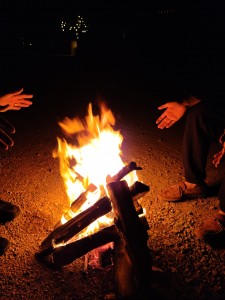 In which Jamie hasn’t returned from a hunting trip when expected, and after spending some time in an isolated cabin by herself, growing more agitated by the moment, Claire decides to go looking for him, and begins to exercise her rudimentary tracking skills.
In which Jamie hasn’t returned from a hunting trip when expected, and after spending some time in an isolated cabin by herself, growing more agitated by the moment, Claire decides to go looking for him, and begins to exercise her rudimentary tracking skills.
He wasn’t behind me, he wasn’t in front of me. Left, then, or right?
“Eeny, meeny, miney, mo,” I muttered, and turned downhill because the walking was easier, shouting now and then.
I stopped to listen. Was there an answering shout? I called again, but couldn’t make out a reply. The wind was coming up, rattling the tree limbs overhead.
I took another step, landed on an icy rock, and my foot slid out from under me. I slipped and skidded, floundering down a short, muddy slope, hit a screen of dog-hobble, burst through and clutched a handful of icy twigs, heart pounding.
At my feet was the edge of a rocky outcrop, ending in thin air. Clinging to the bush to keep from slipping, I edged my way closer, and looked over.
It was not a cliff, as I’d thought; the drop was no more than five feet. It was not this that made my heart leap into my throat, though, but rather the sight that met my eyes in the leaf-filled hollow below.
There was a flurry of tossed and scuffled leaves, reminding me unpleasantly of the death marks left by the limp rabbit that hung at my belt. Something large had struggled on the ground here—and then been dragged away. A wide furrow plowed through the leaves, disappearing into the darkness beyond.
Heedless of my footing, I scrabbled my way down the side of the outcrop and rushed toward the furrow, following it under the overhanging low branches of hemlock and balsam. In the uncertain light of my flickering torch, I followed its path around a pile of rocks, through a clump of wintergreen, and…
He was lying near the foot of a large split boulder, half covered in leaves, as though something had tried to bury him. He wasn’t curled for warmth, but lay flat on his face, and deathly still. The snow lay thick on the folds of his cloak, dusted the heels of his muddy boots.
I dropped my torch and flung myself on his body with a cry of horror.
He let out a bloodcurdling groan and convulsed under me. I jerked back, torn between relief and terror. He wasn’t dead, but he was hurt. Where, how badly?
“Where?” I demanded, wrenching at his cloak, which was tangled round his body. “Where are you hurt? Are you bleeding, have you broken something?”
I couldn’t see any large patches of blood, but I had dropped my torch, which had promptly extinguished itself in the wet leaves that covered him. The pink sky and falling snow shed a luminous glow over everything, but the light was much too dim to make out details.
He was frighteningly cold; his flesh felt chilly even to my snow-numbed hands, and he stirred sluggishly, subsiding into small moans and grunts. I thought I heard him mumble, “Back,” though, and once I got his cloak out of the way, I tore at his shirt, yanking it ruthlessly out of his breeks.
This made him groan loudly, and I thrust my hands under the cloth in a panic, looking for the bullet hole. He must have been shot in the back; the entrance wound wouldn’t bleed much, but where had it come out? Had the ball gone clean through? A small piece of my mind found leisure to wonder who’d shot him, and whether they were still nearby.
Nothing. I found nothing; my groping hands encountered nothing but bare, clean flesh; cold as a slab of marble and webbed with old scars, but completely unperforated. I tried again, forcing myself to slow down, feeling with mind as well as fingers, running my palms slowly over his back from nape to small. Nothing.
Lower? There were dark smudges on the seat of his breeks; I’d thought them mud. I thrust a hand under him and groped for his laces, jerked them loose and yanked down his breeches.
It was mud; his buttocks glowed before me, white, firm, and perfect in their roundness, unmarred beneath a silver fuzz. I clutched a handful of his flesh, unbelieving.
“Is that you, Sassenach?” he asked, rather drowsily.
“Yes, it’s me! What happened to you?” I demanded, frenzy giving way to indignation. “You said you’d been shot in the back!”
“No, I didn’t. I couldna, for I haven’t been,” he pointed out logically. He sounded calm and still rather sleepy, his speech slightly slurred. “There’s a verra cold wind whistlin’ up my backside, Sassenach; d’ye think ye could maybe cover me?”
I jerked up his breeches, making him grunt again.
“What the hell is the matter with you?” I said. He was waking up a bit; he twisted his head to look round at me, moving laboriously.
“Aye, well. No real matter. It’s only that I canna move much.” I stared at him.
“Why not? Have you twisted your foot? Broken your leg?”
“Ah…no.” He sounded a trifle sheepish. “I…ah…I’ve put my back out of joint.”
“You what?”
“I’ve done it once before,” he assured me. “It doesna last more than a day or two.”
“I suppose it didn’t occur to you that you wouldn’t last more than a day or two, lying out here on the ground, covered with snow?”
“It did,” he said, still drowsy, “but there didna seem much I could do about it.” It was rapidly dawning on me that there might not be that much I could do about it, either. He outweighed me by a good sixty pounds; I couldn’t carry him. I couldn’t even drag him very far over slopes and rocks and gullies. It was too steep for a horse; I might possibly persuade one of the mules to come up here—if I could first find my way back to the cabin in the dark, and then find my way back up the mountain, also in the dark—and in the middle of what looked like becoming a blizzard. Or perhaps I could build a toboggan of tree branches, I thought wildly, and career down the snowy slopes astride his body.
“Oh, do get a grip, Beauchamp,” I said aloud. I wiped at my running nose with a fold of cloak, and tried to think what to do next.
It was a sheltered spot, I realized; looking upward, I could see the snowflakes whirling past the top of the big rock at whose foot we crouched, but there was no wind where we sat, and only a few heavy flakes floated down onto my upturned face.
Jamie’s hair and shoulders were lightly dusted with snow, and flakes were settling on the exposed exposed backs of his legs. I pulled the hem of his cloak down, then brushed the snow away from his face. His cheek was nearly the same color as the big wet flakes, and his flesh felt stiff when I touched it.
Fresh alarm surged through me as I realized that he might be a lot closer to freezing already than I had thought. His eyes were half closed, and cold as it was, he didn’t seem to be shivering much. That was bloody dangerous; with no movement, his muscles were generating no heat, and what warmth he had was leaching slowly from his body. His cloak was already heavy with damp; if I allowed his clothes to become soaked through, he might very well die of hypothermia right in front of me.
“Wake up!” I said, shaking him urgently by the shoulder. He opened his eyes and smiled drowsily at me.
“Move!” I said. “Jamie, you’ve got to move!”
“I can’t,” he said calmly. “I told ye that.” He shut his eyes again.
I grabbed him by the ear and dug my fingernails into the tender lobe. He grunted and jerked his head away.
“Wake up,” I said peremptorily. “Do you hear me? Wake up this moment! Move, damn you! Give me your hand.”
I didn’t wait for him to comply, but dug under the cloak and seized his hand, which I chafed madly between my own. He opened his eyes again and frowned at me. “I’m all right,” he said. “But I’m gey tired, aye?”
“Move your arms,” I ordered, flinging the hand at him. “Flap them, up and down. Can you move your legs at all?”
He sighed wearily, as though dragging himself out of a sticky bog, and muttered something under his breath in Gaelic, but very slowly he began to move his arms back and forth. With more prodding, he succeeded in flexing his ankles—though any further movement caused instant spasms in his back—and with great reluctance, began to waggle his feet.
He looked rather like a frog trying to fly, but I wasn’t in any mood to laugh. I didn’t know whether he was actually in danger of freezing or not, but I wasn’t taking any chances. By dint of constant exhortation, aided by judicious pokings, I kept him at this exercise until I had got him altogether awake and shivering. In a thoroughly bad temper, too, but I didn’t mind that.
“Keep moving,” I advised him. I got up with some difficulty, having grown quite stiff from crouching over him so long. “Move, I say!” I added sharply, as he showed symptoms of flagging. “Stop and I’ll step square on your back, I swear I will!”
I glanced around, a little blearily. The snow was still falling, and it was difficult to see more than a few feet. We needed shelter—more than the rock alone could provide.
“Hemlock,” he said between his teeth. I glanced down at him, and he jerked his head toward a clump of trees nearby. “Take the hatchet. Big…branches. Six feet. C-cut four.” He was breathing heavily, and there was a tinge of color visible in his face, despite the dim light. He’d stopped moving in spite of my threats, but his teeth were clenched because they were chattering; a sign I rejoiced to see.
I stooped and groped beneath his cloak again, this time searching for the hatchet belted round his waist. I couldn’t resist sliding a hand under him, inside the neck of his fringed woolen hunting shirt. Warm! Thank God, he was still warm; his chest felt superficially chilled from its contact with the wet ground, but it was still warmer than my fingers.
“Right,” I said, taking my hand away and standing up with the hatchet. “Hemlock. Six-foot branches, do you mean?”
He nodded, shivering violently, and I set off at once for the trees he indicated.
Inside the silent grove, the fragrance of hemlock and cedar enfolded me at once in a mist of resins and turpenes, the odor cold and sharp, clean and invigorating. Many of the trees were enormous, with the lower branches well above my head, but there were smaller ones scattered here and there. I saw at once the virtues of this particular tree—no snow fell under them; the fanlike boughs caught the falling snow like umbrellas.
I hacked at the lower branches, torn between the need for haste and the very real fear of chopping off a few fingers by accident; my hands were numb and awkward with the cold. The wood was green and elastic and it took forever to chop through the tough, springy fibers. At last, though, I had four good-sized branches, sporting multiple fans of dense needles. They looked soft and black against the new snow, like big fans of feathers; it was almost a surprise to touch them and feel the hard, cold prick of the needles.
I dragged them back to the rock, and found that Jamie had managed to scoop more leaves together; he was almost invisible, submerged in a huge drift of black and gray against the foot of the rock.
Under his terse direction I leaned the hemlock branches fan-up against the face of the rock, the chopped butt ends stuck into the earth at an angle, so as to form a small triangular refuge underneath. Then I took the hatchet again and chopped small pine and spruce branches, pulled up big clumps of dried grass, and piled it all against and over the hemlock screen. Then at last, panting with exertion, I crawled into the shelter beside him.
I nestled down in the leaves between his body and the rock, wrapped my cloak around both of us, put my arms around his body, and held on hard. Then I found the leisure to shake a bit. Not from cold—not yet—but from a mixture of relief and fear.
He felt me shivering, and reached awkwardly back to pat me in reassurance.
“It will be all right, Sassenach,” he said. “With the two of us, it will be all right.”
“I know,” I said, and put my forehead against his shoulder blade. It was a long time before I stopped shaking, though.
“How long have you been out here?” I asked finally. “On the ground, I mean?” He started to shrug, then stopped abruptly, groaning.
“A good time. It was just past noon when I jumped off a wee crop of rock. It wasna more than a few feet high, but when I landed on one foot, my back went click! and next I knew, I was on my face in the dirt, feelin’ as though someone had stabbed me in the spine wi’ a dirk.”
It wasn’t warm in our snug, by any means; the damp from the leaves was seeping in and the rock at my back seemed to radiate coldness, like some sort of reverse furnace. Still, it was noticeably less cold than it was outside. I began shivering again, for purely physical reasons.
Jamie felt me, and groped at his throat.
“Can ye get my cloak unfastened, Sassenach? Put it over ye.” It took some maneuvering, and the cost of a few muffled oaths from Jamie as he tried to shift his weight, but I got it loose at last, and spread it over the two of us. I reached down and laid a cautious hand on his back, gently rucking up his shirt to put my hand on cool, bare flesh.
“Tell me where it hurts,” I said. I hoped to hell he hadn’t slipped a disc; hideous thoughts of his being permanently crippled raced through my mind, along with pragmatic considerations of how I was to get him off the mountain, even if he wasn’t. Would I have to leave him here, and fetch food up to him daily until he recovered?
“Right there,” he said, with a hiss of indrawn breath. “Aye, that’s it. A wicked stab just there, and if I move, it runs straight down the back o’ my leg, like a red-hot wire.”
I felt very carefully, with both hands now, probing and pressing, urging him to try to lift one leg, right, now the other knee… no?
“No,” he assured me. “Dinna be worrit, though, Sassenach. It’s the same as before. It gets better.”
“Yes, you said it happened before. When was that?”
He stirred briefly and settled, pressing back against my palms with a small groan. “Och! Damn, that hurts. At the prison.”
“Pain in the same place?”
“Aye.”
I could feel a hard knot in the muscle on his right side, just below the kidney, and a bunching in the erector spinae, the long muscles near the spine. From his description of the prior occurrence, I was fairly sure it was only severe muscle spasm. For which the proper prescription was warmth, rest, and anti-inflammatory medication.
Couldn’t get much further away from those conditions, I thought with some grimness.
“I suppose I could try acupuncture,” I said, thinking aloud. “I’ve got Mr. Willoughby’s needles in my pouch, and—”
“Sassenach,” he said, in measured tones. “I can stand fine bein’ hurt, cold, and hungry. I wilna put up wi’ being stabbed in the back by my own wife. Can ye not offer a bit of sympathy and comfort instead?”
I laughed, and slid an arm around him, pressing close against his back. I let my hand slide down and rest in delicate suggestion, well below his navel.
“Er…what sort of comfort did you have in mind?”
He hastily grasped my hand, to prevent further intrusions. “Not that,” he said.
“Might take your mind off the pain.” I wiggled my fingers invitingly, and he tightened his grip.
“I daresay,” he said dryly. “Well, I’ll tell ye, Sassenach; once we’ve got home, and I’ve a warm bed to lie in and a hot supper in my belly, that notion might have a good bit of appeal. As it is, the thought of—for Christ’s sake, have ye not the slightest idea how cold your hands are, woman?”
I laid my cheek against his back and laughed. I could feel the quiver of his own mirth, though he couldn’t laugh aloud without hurting his back.
At last we lay silent, listening to the whisper of falling snow. It was dark under the hemlock boughs, but my eyes were adapted enough to be able to see patches of the oddly glowing snow-light through the screen of needles overhead. Tiny flakes came through the open patches; I could see it in some places, as a thin cloud of white mist, and I could feel the cold tingle as it struck my face.
Jamie himself was no more than a humped dark shape in front of me, though as my eyes became accustomed to the murk, I could see the paler stalk where his neck emerged between his shirt and his queued hair. The queue itself lay cool and smooth against my face; by turning my head only a bit, I could brush it with my lips.
“What time do you think it is?” I asked. I had no idea, myself; I had left the house well after dark, and spent what seemed an eternity looking for him on the mountain.
“Late,” he said. “It will be a long time before the dawn, though,” he added, answering my real question. “It’s just past the solstice, aye? It’s one of the longest nights of the year.”
“Oh, lovely,” I said, in dismay. I wasn’t warm, by any means—I still couldn’t feel my toes—but I had stopped shivering. A dreadful lethargy was stealing over me, my muscles yielding to fatigue and cold. I had visions of the two of us freezing peacefully together, curled up like hedgehogs in the leaves. They did say it was a comfortable death, but that didn’t make the prospect any more appealing.
Jamie’s breathing was getting slower and deeper.
“Don’t go to sleep!” I said urgently, poking him in the armpit.
“Agh!” He pressed his arm tight to his side, recoiling. “Why not?”
“We mustn’t sleep; we’ll freeze to death.”
“No, we won’t,” he said crossly. “It’s snowing outside; we’ll be covered over soon.”
“I know that,” I said, rather cross in my turn. “What’s that got to do with it?”
He tried to turn his head to look at me, but couldn’t, quite.
“Snow’s cold if ye touch it,” he explained, striving for patience, “but it keeps the cold out, aye? Like a blanket. It’s a great deal warmer in a house that’s covered wi’ snow than one that’s standing clean in the wind. How d’ye think bears manage? They sleep in the winter, and they dinna freeze.”
“They have layers of fat,” I protested. “I thought that kept them warm.”
“Ha ha,” he said, and reaching back with some effort, grabbed me firmly by the bottom. “Well, then, ye needna worry a bit, eh?”
With great deliberation I pulled down his collar, stretched my head up, and licked the back of his neck, in a lingering swipe from nape to hairline.
“Aaah!” He shuddered violently, making a sprinkle of snow fall from the branches above us. He let go of my bottom to scrub at the back of his neck.
“That was a terrible thing to do!” he said, reproachful. “And me lyin’ here helpless as a log!”
“Bah, humbug,” I said. I nestled closer, feeling somewhat reassured. “You’re sure we aren’t going to freeze to death, then?”
“No,” he said. “But I shouldna think it likely.”
“Hm,” I said, feeling somewhat less reassured. “Well, perhaps we’d better stay awake for a bit, then, just in case?”
“I wilna wave my arms about anymore,” he said definitely. “There’s no room. And if ye stick your icy wee paws in my breeks, I swear I’ll throttle ye, bad back or no.”
“All right, all right,” I said. “What if I tell you a story, instead?”
Highlanders loved stories, and Jamie was no exception.
“Oh, aye,” he said, sounding much happier. “What sort of story is it?”
“A Christmas story,” I said, settling myself along the curve of his body. “About a miser named Ebenezer Scrooge.”
“An Englishman, I daresay?” “Yes,” I said. “Be quiet and listen.” I could see my own breath as I talked, white in the dim, cold air. The snow was falling heavily outside our shelter; when I paused in the story, I could hear the whisper of flakes against the hemlock branches, and the far-off whine of wind in the trees.
I knew the story very well; it had been part of our Christmas ritual, Frank’s and Brianna’s and mine. From the time Bree was five or six, we had read A Christmas Carol every year, starting a week or two before Christmas, Frank and I taking it in turns to read to her each night before bed.
“And the specter said, ‘I am the Ghost of Christmas Past…’ ”
I might not be freezing to death, but the cold had a strange, hypnotic effect nonetheless. I had gone past the phase of acute discomfort and felt now slightly disembodied. I knew my hands and feet were icy, and my body chilled half through, but it didn’t seem to matter anymore. I floated in a peaceful white mist, seeing the words swirl round my head like snowflakes as I spoke them.
“…and there was dear old Fezziwig, among the lights and music…”
I couldn’t tell whether I was gradually thawing or becoming colder. I was conscious of an overall feeling of relaxation, and an altogether peculiar sense of déjà vu, as though I had once before been entombed, insulated in snow, snug despite desolation outside.
As Bob Cratchit bought his meager bird, I remembered. I went on talking automatically, the flow of the story coming from somewhere well below the level of consciousness, but my memory was in the front seat of a stalled 1956 Oldsmobile, its windscreen caked with snow.
We had been on our way to visit an elderly relative of Frank’s, somewhere in upstate New York. The snow came on hard, halfway there, howling down across the icy roads with gusts of wind. Before we knew where we were, we had skidded off the road and halfway into a ditch, the windscreen wipers slashing futilely at the pelting snow.
There was nothing to be done but wait for morning, and rescue. We had had a picnic hamper and some old blankets; we brought Brianna up into the front seat between us, and huddled all together under coats and blankets, sipping lukewarm cocoa from the thermos and making jokes to keep her from being frightened.
As it grew later, and colder, we huddled closer, and to distract Brianna, Frank began to tell her Dickens’s story from memory, counting on me to supply the missing bits. Neither of us could have done it alone, but between us, we managed well. By the time the sinister Ghost of Christmas Yet to Come had made his appearance, Brianna was snuggled sound asleep under the coats, a warm, boneless weight against my side.
There was no need to finish the story, but we did, talking to each other below the words, hands touching below the layers of blankets. I remembered Frank’s hands, warm and strong on mine, thumb stroking my palm, outlining my fingers. Frank had always loved my hands. The car had filled with the mist of our breathing, and drops of water ran down inside the white-choked windows. Frank’s head had been a dark cameo, dim against the white. He had leaned toward me at the last, nose and cheeks chilled, lips warm on mine as he whispered the last words of the story.
“ ‘God bless us, every one,’ ” I ended, and lay silent, a small needle of grief like an ice splinter through my heart. It was quiet inside the shelter, and seemed darker; snow had covered over all the openings.
Jamie reached back and touched my leg.
“Put your hands inside my shirt, Sassenach,” he said softly. I slid one hand up under his shirt in front, to rest against his chest, the other up his back. The faded whip marks felt like threads under his skin.
He laid his hand against mine, pressing it tight against his chest. He was very warm, and his heart beat slow and strong under my fingers.
“Sleep, a nighean donn,” he said. “I wilna let ye freeze.”
……………………
I woke abruptly from a chilly doze, with Jamie’s hand squeezing my thigh.
“Hush,” he said softly. Our tiny shelter was still dim, but the quality of the light had changed. It was morning; we were covered over with a thick blanket of snow that blocked the daylight, but the faint otherworldly quality of the night’s darkness had vanished.
The silence had vanished, too. Sounds from outside were muffled, but audible. I heard what Jamie had heard—a faint echo of voices—and jerked up in excitement.
“Hush!” he said again, in a fierce whisper, and squeezed my leg harder.
The voices were drawing closer, and it became almost possible to pick out words. Almost. Strain as I might, I could make no sense of what was being said. Then I realized that it was because they were not speaking any language I recognized.
Indians. It was an Indian tongue. But I thought the language was not Tuscarora, even though I couldn’t yet make out words; the rise and fall was similar, but the rhythm was somehow different. I brushed the hair out of my eyes, feeling torn in two directions.
Here was the help we so badly needed—by the sound of it, there were several men in the party, enough to move Jamie safely. On the other hand, did we really want to attract the attention of a band of unfamiliar Indians who might be raiders?
Rather plainly we didn’t, judging from Jamie’s attitude. He had managed to lift himself on one elbow, and he had his knife drawn, ready in his right hand. He scratched his stubbled chin absently with the point as he tilted his head to listen more intently to the approaching voices.
A clump of snow fell from the framework of our cage, landing on my head with a little plop! and making me start. The movement loosened more snow, which poured inward in a glittering cascade, dusting Jamie’s head and shoulders with fine white powder.
His fingers were gripping my leg hard enough to leave bruises, but I didn’t move or make a sound. A patch of snow had fallen from the latticework of hemlock branches, leaving numerous small spaces through which I could see out between the needles, peering over Jamie’s shoulder.
The ground sloped a little away from us, falling a few feet to the level of the grove where I had cut branches the night before. Everything was thick with snow; a good four inches must have fallen during the night. It was just past dawn, and the rising sun painted the black trees with coruscations of red and gold, striking white glare from the icy sweep of snow below. The wind had come up in the wake of the storm; loose snow blew off the branches in drifting clouds, like smoke.
The Indians were on the other side of the grove; I could hear the voices plainly now; arguing about something, from the sound of it. A sudden thought raised gooseflesh on my arms; if they came through the grove, they might see the hacked branches where I had chopped limbs from the hemlocks. I hadn’t been neat; there would be needles and bits of bark scattered all over the ground. Would enough snow have trickled through the branches to cover my awkward spoor?
A flash of movement showed in the trees, then another, and suddenly they were there, materializing out of the hemlock grove like dragon’s teeth sprung from the snow.
They were dressed for winter travel, in fur and leather, some with cloaks or cloth coats atop their leggings and soft boots. They all carried bundles of blankets and provisions, had headpieces made of fur, and most had snowshoes slung across their shoulders; evidently the snow here was not deep enough to render them necessary.
They were armed; I could see a few muskets, and tomahawks or war clubs hung at every belt. Six, seven, eight… I counted silently as they came out of the trees in single file, each man treading in the prints of the one before him. One near the back called out something, half laughing, and a man near the front replied over his shoulder, his words lost in the blowing veil of snow and wind.
I drew a deep breath. I could smell Jamie’s scent, a sharp tinge of fresh sweat above his normal musky sleep-smell. I was sweating, too, in spite of the cold. Did they have dogs? Could they sniff us out, hidden as we were beneath the sharp reek of spruce and hemlock?
Then I realized that the wind must be toward us, carrying the sound of their voices. No, even dogs wouldn’t scent us. But would they see the branches that framed our den? Even as I wondered this, a large patch of snow slid off with a rush, landing with a soft flump! outside.
Jamie drew in his breath sharply, and I leaned over his shoulder, staring. The last man had come out of the gap in the trees, an arm across his face to shield it from the blowing snow.
He was a Jesuit. He wore a short cape of bearskin over his habit, leather leggings and moccasins under it—but he had black skirts, kilted up for walking in the snow, and a wide, flat black priest’s hat, held on with one hand against the wind. His face, when he showed it, was blond-bearded, and so fair-skinned that I could see the redness of his cheeks and nose even at such a distance.
“Call them!” I whispered, leaning close to Jamie’s ear. “They’re Christians, they must be, to have a priest with them. They won’t hurt us.”
He shook his head slowly, not taking his eyes off the file of men, now vanishing from our view behind a snow-topped outcropping.
“No,” he said, half under his breath. “No. Christians they may be, but…” He shook his head again, more decidedly. “No.”
There was no use arguing with him. I rolled my eyes in mingled frustration and resignation.
“How’s your back?”
He stretched gingerly, and halted abruptly in mid-motion, with a strangled cry as though he’d been skewered.
“Not so good, hm?” I said, sympathy well laced with sarcasm. He gave me a dirty look, eased himself very slowly back into his bed of crushed leaves, and shut his eyes with a sigh. “You have of course thought of some ingenious way of getting down the mountain, I imagine?” I said politely.
He opened one eye.
“No,” he said, and shut it again. He breathed quietly, his chest rising and falling gently under his fringed hunting shirt, giving a brilliant impression of a man with nothing on his mind but his hair.
It was a cold day, but a bright one, and the sun was jabbing brilliant fingers of light into our erstwhile sanctum, making little blobs of snow drop like falling sugarplums around us. I scooped up one of these and gently decanted it into the neck of his shirt.
He drew in his breath through his teeth with a sharp hiss, opened his eyes, and regarded me coldly.
“I was thinking,” he informed me.
“Oh. Sorry to interrupt, then.” I eased myself down beside him, pulling the tangled cloaks up over us. The wind was beginning to lace through the holes in our shelter, and it occurred to me that he’d been quite right about the sheltering effects of snow. Only there wasn’t going to be any snow falling tonight, I didn’t think.
Then there was the little matter of food to be considered. My stomach had been making subdued protests for some time, and Jamie’s now voiced its much louder objections. He squinted censoriously down his long, straight nose at the offender.
“Hush,” he said reprovingly in Gaelic, and cast his eyes upward. At last he sighed and looked at me.
“Well, then,” he said. “Ye’d best wait a bit, to be sure yon savages are well away. Then ye’ll go down to the cabin—”
“I don’t know where it is.”
He made a small noise of exasperation.
“How did ye find me?”
“Tracked you,” I said, with a certain amount of pride. I glanced through the needles at the blowing wilderness outside. “I don’t suppose I can do it in reverse, though.”
“Oh.” He looked mildly impressed. “Well, that was verra resourceful of ye, Sassenach. Dinna worry, though; I can tell ye how to go, to find your way back.”
“Right. And then what?”
He shrugged one shoulder. The bit of snow had melted, running down his chest, dampening his shirt and leaving a tiny pool of clear water standing in the hollow of his throat.
“Bring me back a bit of food, and a blanket. I should be able to move in a few days.”
“Leave you here?” I glared at him, my turn to be exasperated.
“I’ll be all right,” he said mildly.
“You’ll be eaten by wolves!”
“Oh, I shouldna think so,” he said casually. “They’ll be busy with the elk, most likely.”
“What elk?” He nodded toward the hemlock grove.
“The one I shot yesterday. I took it in the neck, but the shot didna quite kill it at once. It ran through there. I was following it, when I hurt myself.” He rubbed a hand over the copper and silver bristles on his chin.
“I canna think it went far. I suppose the snow must have covered the carcass, else our wee friends would have seen it, coming from that direction.” “
So you’ve shot an elk, which is going to draw wolves like flies, and you propose to lie here in the freezing cold waiting for them? I suppose you think by the time they get round to the second course, you’ll be so numb you won’t notice when they start gnawing on your feet?”
“Don’t shout,” he said. “The savages might not be so far away, yet.”
I was drawing breath for further remarks on the subject, when he stopped me, putting his hand up to caress my cheek.
“Claire,” he said gently. “Ye canna move me. There’s nothing else to do.”
“There is,” I said, repressing a quaver in my voice. “I’ll stay with you. I’ll bring you blankets and food, but I’m not leaving you up here alone. I’ll bring wood, and we’ll make a fire.”
“There’s no need. I can manage,” he insisted.
“I can’t,” I said, between my teeth. I remembered all too well what it had been like in the cabin, during those empty, suffocating hours of waiting. Freezing my arse off in the snow for several days wasn’t at all an appealing prospect, but it was better than the alternative.
He saw I meant it, and smiled.
“Well, then. Ye might bring some whisky, too, if there’s any left.”
“There’s half a bottle,” I said, feeling happier. “I’ll bring it.”
He got an arm around me, and pulled me into the curve of his shoulder. In spite of the howling wind outside, it was actually reasonably cozy under the cloaks, snuggled tight against him. His skin smelled warm and slightly salty, and I couldn’t resist raising my head and putting my lips to the damp hollow of his throat.
“Aah,” he said, shivering. “Don’t do that!”
“You don’t like it?”
“No, I dinna like it! How could I? It makes my skin crawl!”
“Well, I like it,” I protested.
He looked at me in amazement.
“You do?”
“Oh, yes,” I assured him. “I dearly love to have you nibble on my neck.”
He narrowed one eye and squinted dubiously at me. Then he reached up, took me delicately by the ear, and drew my head down, turning my face to the side. He flicked his tongue gently at the base of my throat, then lifted his head and set his teeth very softly in the tender flesh at the side of my neck.
“Eeeee,” I said, and shivered uncontrollably.
He let go, looking at me in astonishment.
“I will be damned,” he said. “Ye do like it; ye’ve gone all gooseflesh and your nipples are hard as spring cherries.” He passed a hand lightly over my breast; I hadn’t bothered with my makeshift brassiere when I dressed for my impromptu expedition.
“Told you,” I said, blushing slightly. “I suppose one of my ancestresses was bitten by a vampire or something.”
“A what?” He looked quite blank. There was time to kill, so I gave him a thumbnail sketch of the life and times of Count Dracula. He looked bemused and appalled, but his hand carried on with its machinations, having now moved under my buckskin shirt and found its way beneath the cutty sark as well. His fingers were chilly, but I didn’t mind.
“Some people find the notion terribly erotic,” I ended.
“That’s the most disgusting thing I’ve ever heard!”
“I don’t care,” I said, stretching out at full length beside him and putting my head back, throat invitingly exposed. “Do it some more.”
He muttered something under his breath in Gaelic, but managed to get onto one elbow and roll toward me. His mouth was warm and soft, and whether he approved of what he was doing or not, he did it awfully well.
“Ooooh,” I said, and shuddered ecstatically as his teeth sank delicately into my earlobe.
“Oh, well, if it’s like that,” he said in resignation, and taking my hand, pressed it firmly between his thighs.
“Gracious,” I said. “And here I thought the cold…”
“It’ll be warm enough soon,” he assured me. “Get them off, aye?”
It was rather awkward, given the cramped quarters, the difficulty of staying covered in order not to suffer frostbite in any exposed portions, and the fact that Jamie was able to lend only the most basic assistance, but we managed quite satisfactorily nonetheless.
What with one thing and another, I was rather preoccupied, though, and it was only during a temporary lull in the activities that I became aware of an uneasy sensation, as though I was being watched. I lifted myself on my hands and glanced out through the screen of hemlock, but saw nothing beyond the grove and the snow-covered slope below.
Jamie gave a low groan.
“Don’t stop,” he murmured, eyes half closed. “What is it?”
“I thought I heard something,” I said, lowering myself onto his chest again.
At this, I did hear something; a laugh, low but distinct, directly above my head. I rolled off in a tangle of cloaks and discarded buckskins, while Jamie cursed and snatched for his pistol.
He flung aside the branches with a swoosh, pointing the pistol upward.
From the top of the rock above, several heads peered over, all grinning. Ian, and four companions from Anna Ooka. The Indians murmured and snickered among themselves, seeming to find something immoderately funny.
Jamie laid the pistol down, scowling up at his nephew.
“And what the devil are you doin’ here, Ian?”
“Why, I was on my way home to keep Christmas with ye, Uncle,” Ian said, grinning hugely. Jamie eyed his nephew with marked disfavor.
“Christmas,” he said. “Bah, humbug.”
This excerpt was also posted on my official Facebook page on Friday, December 25, 2020.
Posted on December 25, 2020 5:10 PM
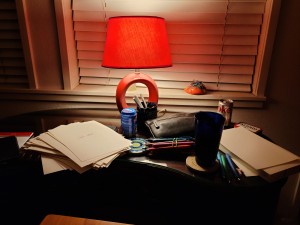 It must be a dull week in Trollsville. I went by the Poisoned Pen (that’s my local independent bookstore, for those unfamiliar) yesterday afternoon to sign the latest pile of backlist titles (the Pen handles all my autographed books, and has done so for the last twenty-odd years) and while chatting with Patrick, the manager, was surprised (and displeased) to hear that some folk with too much time on their hands were posting intemperate messages on tumblr, claiming that the Poisoned Pen is a scam outfit, that they don’t really provide signed books, and that people who have pre-ordered BEES won’t get their copies signed.
It must be a dull week in Trollsville. I went by the Poisoned Pen (that’s my local independent bookstore, for those unfamiliar) yesterday afternoon to sign the latest pile of backlist titles (the Pen handles all my autographed books, and has done so for the last twenty-odd years) and while chatting with Patrick, the manager, was surprised (and displeased) to hear that some folk with too much time on their hands were posting intemperate messages on tumblr, claiming that the Poisoned Pen is a scam outfit, that they don’t really provide signed books, and that people who have pre-ordered BEES won’t get their copies signed.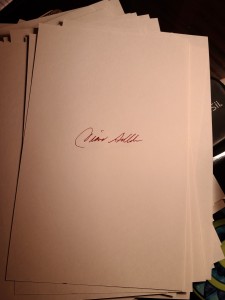 Signing tip-sheets. A tip-sheet (see image at left) is a loose sheet of paper, which will eventually be bound into a book as it’s produced. It’s a method of dealing with huge numbers of books, where shipping the actual books to and fro would be both expensive and laborious. I do this now and then—on request—for some of my publishers (in the US, the UK (including Australia and New Zealand(, and Canada, on this go) when a new book is coming out.
Signing tip-sheets. A tip-sheet (see image at left) is a loose sheet of paper, which will eventually be bound into a book as it’s produced. It’s a method of dealing with huge numbers of books, where shipping the actual books to and fro would be both expensive and laborious. I do this now and then—on request—for some of my publishers (in the US, the UK (including Australia and New Zealand(, and Canada, on this go) when a new book is coming out.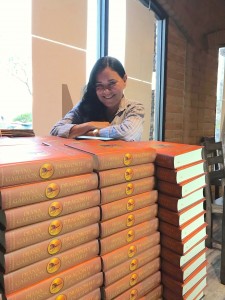 Person 1 opens the cartons of books, dumps them and stacks the books at one end of the table.
Person 1 opens the cartons of books, dumps them and stacks the books at one end of the table.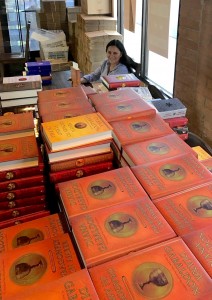 I don’t know how many copies of of BEES have so far been ordered from the Poisoned Pen (let alone how many they’ll eventually sell), but they had 20,000 pre-orders by August (thank you!!), and at that point, the Pen’s owner put out word that while I will sign all the books people want signed, there’s a limit (physically) to how many I can sign by December 10th— that being the latest shipping date on which you might reasonably expect the book to be delivered by Christmas 2021. That limit is 20,000. (See, I can’t sign books until they arrive at the bookstore, which won’t be until November.) Ergo, if you want a signed book, handled by me personally <g>, you can certainly have it—but if you order it now, I might not be able to sign it in time for it to be shipped for Christmas delivery (especially not this year, when shipping and delivery is a lot bigger and more complex in every area of business). And I can’t personalize them, sorry. (If you really want a personalized book, just wait until January or February, when we’re not working under a shipping deadline.)
I don’t know how many copies of of BEES have so far been ordered from the Poisoned Pen (let alone how many they’ll eventually sell), but they had 20,000 pre-orders by August (thank you!!), and at that point, the Pen’s owner put out word that while I will sign all the books people want signed, there’s a limit (physically) to how many I can sign by December 10th— that being the latest shipping date on which you might reasonably expect the book to be delivered by Christmas 2021. That limit is 20,000. (See, I can’t sign books until they arrive at the bookstore, which won’t be until November.) Ergo, if you want a signed book, handled by me personally <g>, you can certainly have it—but if you order it now, I might not be able to sign it in time for it to be shipped for Christmas delivery (especially not this year, when shipping and delivery is a lot bigger and more complex in every area of business). And I can’t personalize them, sorry. (If you really want a personalized book, just wait until January or February, when we’re not working under a shipping deadline.)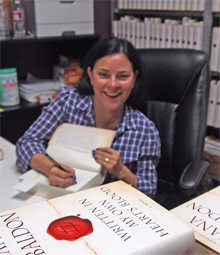 Now, to some people, it won’t make the slightest difference whether their signed book has a tipsheet (signed by me en masse), or was signed by me on the second title page (if you want to tell the difference easily, that’s how; the tip-sheets are blank, aside from my signature), as a complete book. To some people, it does make a substantial difference, and these are the Poisoned Pen’s book-loving customers.
Now, to some people, it won’t make the slightest difference whether their signed book has a tipsheet (signed by me en masse), or was signed by me on the second title page (if you want to tell the difference easily, that’s how; the tip-sheets are blank, aside from my signature), as a complete book. To some people, it does make a substantial difference, and these are the Poisoned Pen’s book-loving customers. The image at left shows many copies of my books waiting to be signed by me in the storeroom at the Poisoned Pen.
The image at left shows many copies of my books waiting to be signed by me in the storeroom at the Poisoned Pen.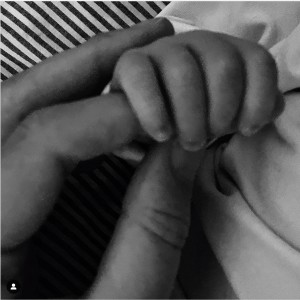
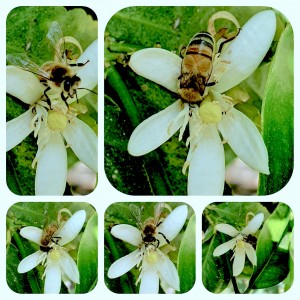
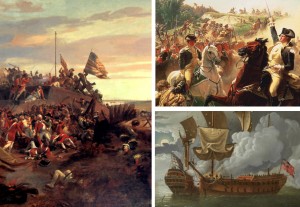
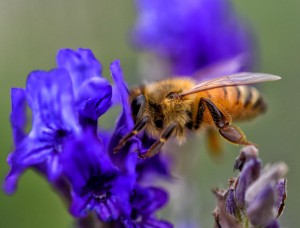
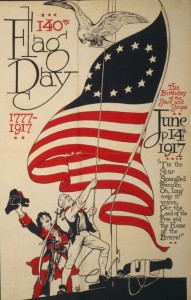
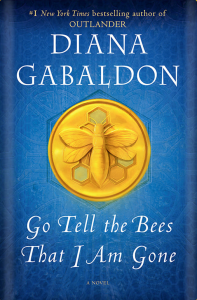
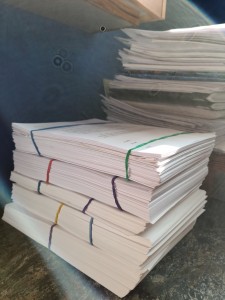 I’ve finished writing
I’ve finished writing 
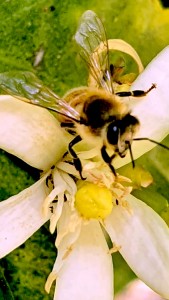
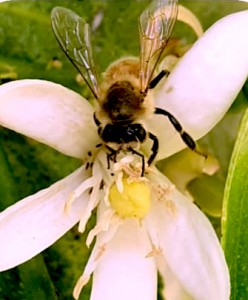
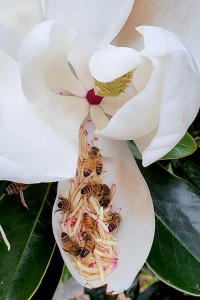
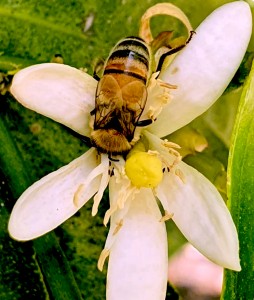
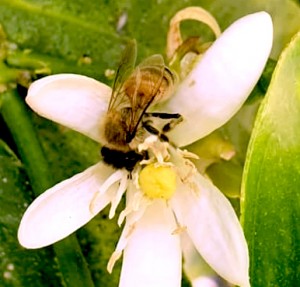
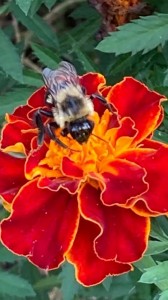
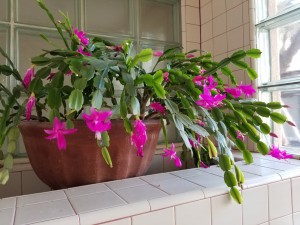
 In which Jamie hasn’t returned from a hunting trip when expected, and after spending some time in an isolated cabin by herself, growing more agitated by the moment, Claire decides to go looking for him, and begins to exercise her rudimentary tracking skills.
In which Jamie hasn’t returned from a hunting trip when expected, and after spending some time in an isolated cabin by herself, growing more agitated by the moment, Claire decides to go looking for him, and begins to exercise her rudimentary tracking skills.